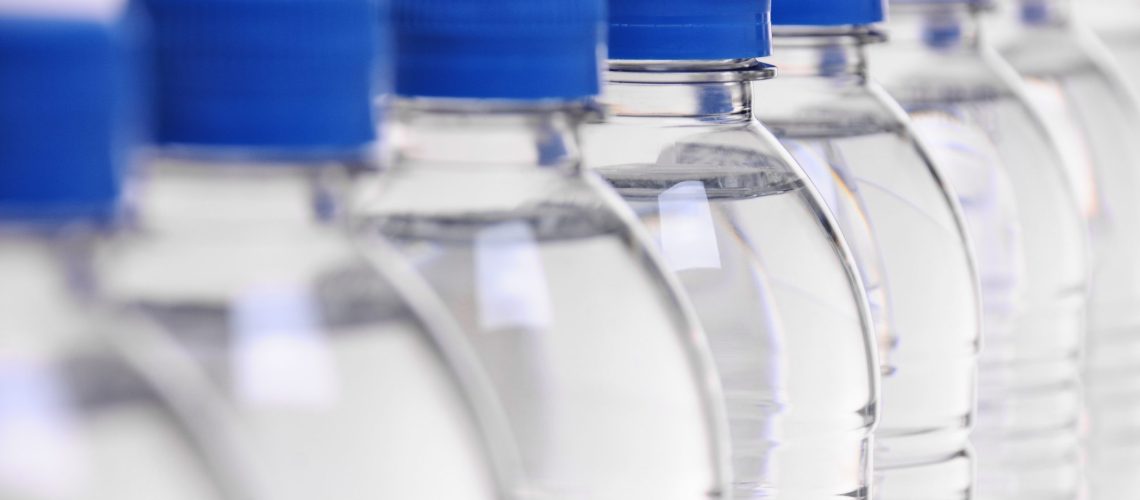What is BPA?
Bisphenol-A, or BPA for short, is a common chemical found in many consumer products such as the plastics used to make baby toys and the lining and lids of food containers. It is also frequently found in dental sealants, cash register receipts, reusable water bottles, and compact discs.
BPA mimics the hormone estrogen and has been associated with a whole host of adverse health effects including learning disabilities, infertility, breast cancer, diabetes, cardiovascular disease, and early onset of puberty. The Maine Center for Disease Control states that even low levels of BPA may be harmful to unborn babies, infants, and children.2BPA is known to leach out of storage containers for water and other drinks, as well as from the linings of food cans, where it is then ingested. Studies have shown that most Americans have detectable BPA levels in their blood.3 A 2011 study from the Harvard School of Public Health found that people who ate a small portion of canned soup every day for only five days had a ten-fold increase in blood levels of BPA.4BPA in Maine:
A 2016 testing of nearly 200 food can linings found that two out of three cans tested had BPA in the lining.The Buyer Beware report also found that retailers and national brands that are phasing out BPA could be replacing it with regrettable substitutes.
Protect Your Family from BPA:
You can reduce your exposure to BPA by taking some of the following steps:
- Use fresh ingredients when cooking
- Use frozen vegetables and meats if you can’t buy fresh
- When purchasing canned foods, try to avoid those containing high fat and sodium, both of which may increase leaching of BPA from food liners.
- Avoid containers made from polycarbonate plastic, sometimes labeled PC on the bottom. Glass and steel containers do not contain BPA.
- Look for BPA-free labels on cans (Eden Foods sells BPA-free canned beans?
The Breast Cancer Prevention Partners identifies 10 canned foods to avoid when trying to cut BPA exposure:
The 10 canned foods to avoid:Coconut MilkSoupMeatVegetablesMeals (e.g., ravioli sauce)JuiceFishBeansMeal-replacement drinksFruit
Campbell’s Soup has announced it will phase out BPA from its cans, although it has not provided a time-line for the phase-out or identified what it will use as an alternative.
A note of Caution about BPA Alternatives
The evidence about BPA’s harmful effects is fueling research into BPA-free alternatives. However, testing requirements for newly introduced chemicals are quite lax. The government reviews toxicity data provided by manufacturers of new chemicals, if such data exists; however in many cases companies are not required to conduct studies. Nor is there a requirement that toxicity experiments be conducted by a third party.
In addition, companies are not asked to test for potential harmful effects on the environment of chemical manufacture or disposal.
The take-home message is to use fresh and minimally processed foods as much as possible.
Questions about Home-Canning
If you are home-canning, you can purchase BPA-free lids from the Tattler company, however these lids may release the toxin formaldehyde at high temperatures. The company website claims formaldehyde is not released at the temperatures found in the typical home canning process. We are unable to find solid studies supporting or refuting these claims.
It is possible that even the traditional BPA-coated 2-part lids used in home-canning will result in less BPA exposure than supermarket canned foods because in the former case the food is only in contact with the lid during the canning process itself. Again, we have not found solid studies to confirm this.
Resources & References
Buyer Beware Can Testing Results and Report
Calafat AM, Ye X, Wong L-Y, Reidy JA, Needham LL (2008). Exposure of the U.S. Population to Bisphenol A and 4-tertiary-Octylphenol; 2003-2004. Environmental Health Perspectives. 116(1):39-44.
Pope, Tara Parker (Nov. 22, 2011). BPA Lurks in Canned Soups and Drinks. New York Times.
Alliance for a Clean and Healthy Maine. Test Results Reveal BPA in Baby Food, Canned Foods.
Rudel RA, Gray JM, Engel CL, Rawsthorne TW, Dodson RE, Ackerman AM, Rizzo J, Nudelman J & Brody JG (2011). Food packaging and Bidphenol A and Bis(2-Ethylhexyl) Phthalate Exposure: Finding from a Dietary Intervention. Environmental Health Perspectives. 119(7):914-920.


